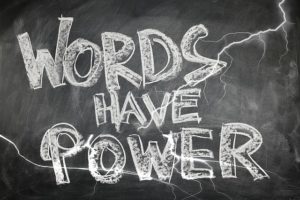Sticks and Stones: Where does the PR language barrier lie?
 By Dom
By Dom
 Most people realised that “sticks and stones may break my bones, but words can never hurt me” wasn’t really true by the time we finished school. For anyone who held on past that, a career in PR is a pretty good way of finally banishing any lingering thoughts you might have. Words such as “leak,” “incompetent,” “massive losses” and “incident with a bag of jaffa oranges in a massage parlour” can have serious consequences for clients, their employees, and ultimately the agency itself. This goes double for the words you put out yourself. Even if they’re completely innocuous, if the wrong words get to the wrong people, it can be at least a little embarrassing, although it might not be clear who for.
Most people realised that “sticks and stones may break my bones, but words can never hurt me” wasn’t really true by the time we finished school. For anyone who held on past that, a career in PR is a pretty good way of finally banishing any lingering thoughts you might have. Words such as “leak,” “incompetent,” “massive losses” and “incident with a bag of jaffa oranges in a massage parlour” can have serious consequences for clients, their employees, and ultimately the agency itself. This goes double for the words you put out yourself. Even if they’re completely innocuous, if the wrong words get to the wrong people, it can be at least a little embarrassing, although it might not be clear who for.
I’m thinking about words a lot as here at Spark, as we’re currently re-examining the language we use when talking about ourselves, and when talking to other audiences. One thing that’s come up a lot is, just what is the appropriate language to use at what time and in what place? Is it acceptable to describe something as “crap” on a corporate website? Is there such a thing as being too formal? Is it ever appropriate to “reach out” to someone, unless you’re trying to save them from a crumbling bridge? And is it possible to apply fixed, consistent rules to something as fluid and personal as language?
Ultimately, and much as this sounds like a cop-out, the answer is “it varies.” You have to know who you’re speaking to and, more importantly, who you’re speaking for. If I’m speaking to a journalist as Dom Walsh, Going To The Pub, then my language will be a lot looser than when speaking as Dom Walsh from Spark Communications. And as soon as I adopt the voice of a particular client, then – unless that client has a very relaxed attitude to how it’s quoted – everything will become a lot more formal and controlled. The same holds true for writing; if we want to add personality to a blog, or the Spark site, or our Twitter, then some PG-related language can work to do that. But if I want to recount the time I saw a * ** a **** in the **** with a *** before ****ing ****’s ****, I should hold off until I can place it in a more appropriate medium, like a family round robin email.
Ultimately, we at PR agencies are hired at least partly because we understand what tone and language to use, and where. A client should trust that an agency is always using the right language with the right people at the right time. This doesn’t mean acting as if butter wouldn’t melt in our mouths, but it means being able to demonstrate that we can be as formal, or as mucky, as the occasion demands. In fact, why not check out some of our work to see how we do just that?